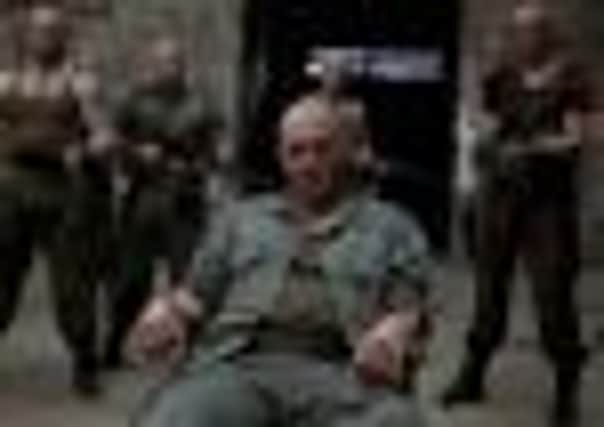Interview: Ralph Fiennes


We’ve all experienced it: something takes root in our subconscious and stays there for days, weeks, even years. A pop song half-heard on the radio. A distant memory from childhood. A film, play or news item that has less to do with world events than our own sense of place and time.
Ralph Fiennes, director, writer and star of a new movie version of Coriolanus, can trace his fascination with the play back to his own theatrical interpretation in 2000 – and then further back to the time when Ian McKellen essayed the role in 1985.
Advertisement
Hide AdAdvertisement
Hide AdIt became an obsession – doubly so when one considers that Fiennes decided to step up and make the project his directorial debut. No big surprises there; actors segue into directing all the time. What is slightly different about Fiennes is the way the role – and all it stands for – has seeped into his very soul.
“I have become an adult in this world where conflict has always been present,” says the 49-year-old.
“Questions of democracy, how people are represented, how they fight to have a voice, the drama of the people in power and the psychology of the people who hold power. These things have been very dominant in the world I am living in. The things I read in the papers and see on the television, they all play out in Coriolanus.
“I played it on stage 11 years ago and I couldn’t get it out of my head, out of my blood. I felt I wanted on one level to revisit the part – I had unfinished business. But I also felt that the play, if you could strip it down and edit it so it was released from a lot of its very quite dense language, could become a very cinematic, forward-moving political thriller.”
Advertisement
Hide AdAdvertisement
Hide AdTwenty years ago when Fiennes first hit the circuit to publicise Wuthering Heights, his film debut as an actor, he was awkward, ill-at-ease and shy. Two decades later, with massive hits for the likes of Steven Spielberg, Kathryn Bigelow and Fernando Meirelles under his belt, he’s no longer encumbered by thoughts, so prevalent in some thespians, that film is somehow inferior to the stage.
In Coriolanus he merged the two. In doing so he got an idea of the machinations that envelope all movies. He had to become a producer, hiring cast members, delivering a vision, establishing the play’s themes on a much bigger platform. He winces at the memory.
“It was extremely hard to get financing,” he recalls.
“Initially when I was pitching it as an idea in Los Angeles, I was introduced to a financier who I was told had very deep pockets and was very interested. In fact this person financed the first two substantial location scouts that we did, which proved his good faith in it.
“But once the big crash came, anyone with any serious financial concerns was very worried. It was a blow but then we started again. It was a nerve-wracking process.”
Advertisement
Hide AdAdvertisement
Hide AdThe film was put together with a multitude of producing partners, including the BBC, and shot in Serbia. And this is where the story takes off along an unusual route. Alongside the key casting of Vanessa Redgrave as Coriolanus’s mother, Volumnia (“so loyal and patient,” says Fiennes), were members of the Serbian anti-terrorist unit. Fiennes smiles a thin smile: “All the troops that you see Coriolanus lead at the beginning, except for the actor who plays Titus, are professionals. I trained with them in the pre-production period to know how to run with a gun, hold a gun and all that stuff. They understood what was needed. They were fantastic.”
The realistic and wholly plausible action sequences have led to comparison’s with The Hurt Locker, the 2008 film about an American bomb disposal expert in Iraq in which Fiennes contributed a cameo as a “contractor” deep in the desert. He allows himself a grin and admits that “calling it the Shakespearean Hurt Locker is a good pitch.”
It is precisely that association, and the relevance of links between the politics of 2,000 years ago and today’s world view, that led Fiennes to set Coriolanus in modern Rome. Togas have given way to power suits, swords to automatic weapons. The tone and mood, however, is one of duplicity, power and betrayal.
So who, today, is Coriolanus? Fiennes visibly stiffens.
“There are some World War I generals who had a very rigid view and were initially conditioned by their military training,” he muses. “Very, very tough. It is a military thing; they take no prisoners.
Advertisement
Hide AdAdvertisement
Hide Ad“The person who speaks contemptuously, often publicly, and has been very tough, is Vladimir Putin. He is not a general, but I think he is a scary figure.
“He frightens me.”
Coriolanus (15) is released today.